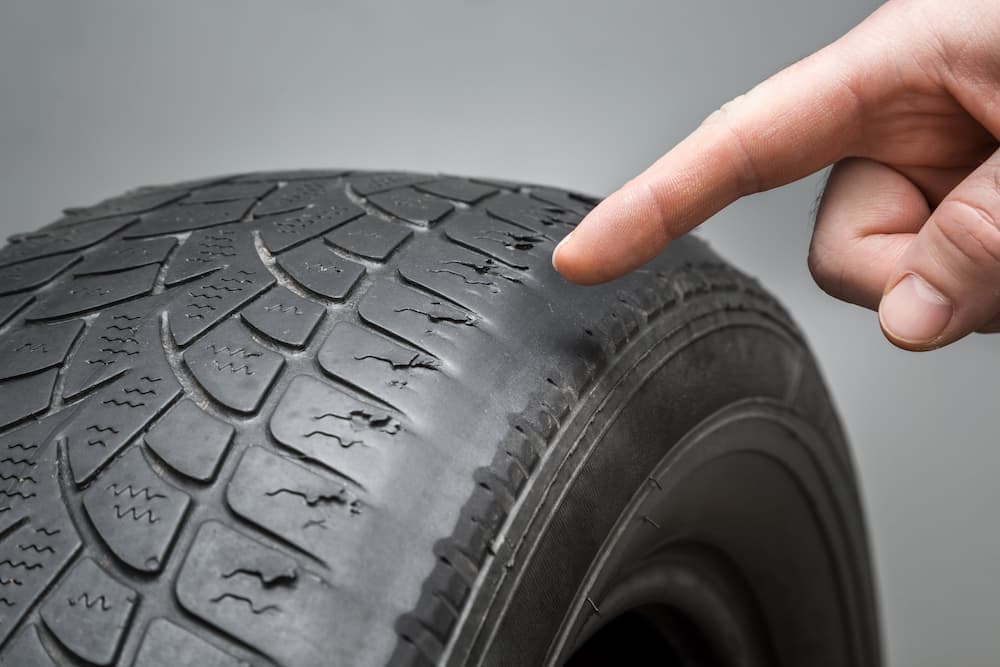Tires are a recurring expense over the lifespan of your car. But how often should they last? What impacts their lifespan, and do you really need to pay for premium tire options?
Everything from how much you drive and the size of your car to the ongoing maintenance you provide for your tires will change how long they last.
At Hallmark Hyundai Flowood, we want to give all of our Flowood community members the insights they need for tire maintenance and safe driving. Take a closer look at what can impact how long your tires last and what you can do to help them last longer.

Average Lifespan of Tires
As a general rule, you can expect three to five years of smooth driving on your tires. But that time estimate depends on how much you drive. If you drive infrequently or you're driving hundreds of miles a week, think in terms of tire mileage instead of time. Some tire manufacturers may give a rough estimate of approximately 60,000 miles.
However, there are multiple different things that can change how long your tires will really last. Consider factors like:
- Aging, which can weaken tires if your car sits undriven for long periods.
- Wear, as the rubber tire material will continuously wear away on roads and make the treads shallow.
- Road conditions, such as rough roads with bumps and potholes, can wear through tires faster than smoother, well-maintained roads.
- Maintenance frequency—if you regularly check the air pressure and rotate your tires, it can help extend tire life, especially on high-performance tires.
Damage, poor alignment, and other stressors, including driving style, can also shorten your tires' lifespan.
The Type of Vehicle You Drive
One of the biggest factors that can affect tire life is the type of vehicle you drive.
But it goes deeper than just heavier cars putting more wear on the tires. Whether you're in the market for a new car or you want to know how your current car's features will impact the tires, keep these things in mind:
- Rear-wheel drive vs. front-wheel drive: Front-wheel drive cars put the most wear and pressure on the front tires, while rear-wheel drive balances all the wear evenly across the tires. This impacts the typical tire mileage your car will have.
- Smart car features: While most vehicles now have a tire pressure monitoring system, some are more detailed than others. Depending on your car's make and model, it may tell you exactly which tire is having problems and what the problem is. Your car may also have sensors that tell you the pressure levels in each tire.
- Size: Different cars require different tire sizes, which will affect your ability to buy longer-lasting options.
Tire Maintenance Tips
Every car owner can take steps to make their tires safer to drive on for longer. Some key tire maintenance tips for Flowood community residents are:
- Have your tires rotated at least every 7,500 miles. For most cars, the front left tire wears out the fastest. Rotating them distributes the wear.
- When you have a tire rotation appointment, also have the wheels balanced to reduce uneven wear.
- Check the air pressure when the temperature drops. Rapidly cooling temperatures can decrease pressure levels on your tires, increasing wear. While it doesn't snow in Flowood, a sudden cold snap can still have an effect.
Contact Hallmark Hyundai Flowood When It's Time to Change Your Tires
Rotating your tires and changing them out when the treads wear thin are vital car maintenance tasks. As a family-owned dealership, Hallmark Hyundai Flowood can help.
Schedule an appointment with our friendly services team when it's time to change your tires or time for a car maintenance check-in. Not sure if it's time for your specific vehicle? Call in to learn more about your car's tire mileage guidelines!
Image Source: FotoDuets/Shutterstock
Categories:
Blog

